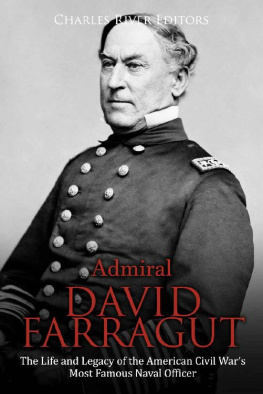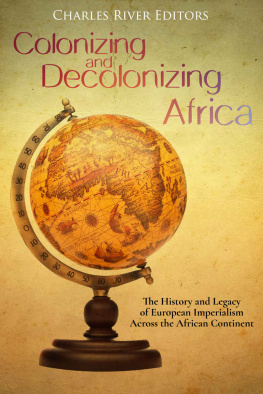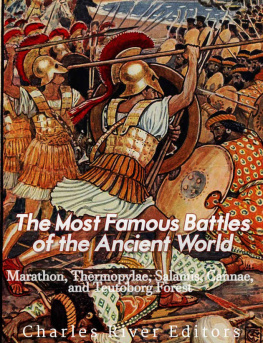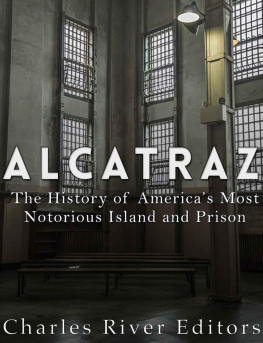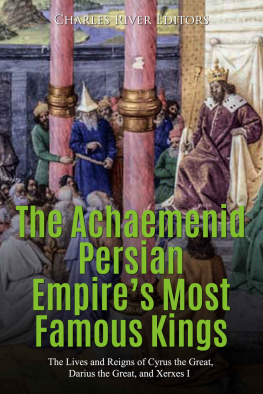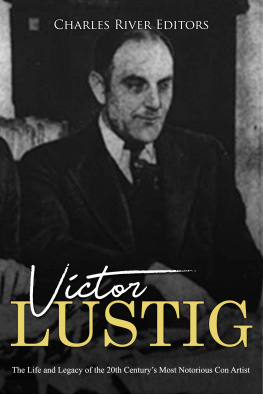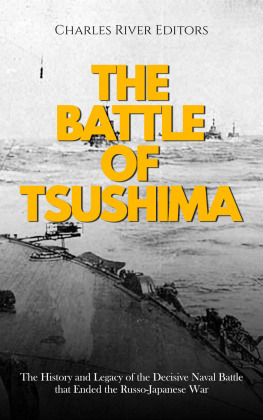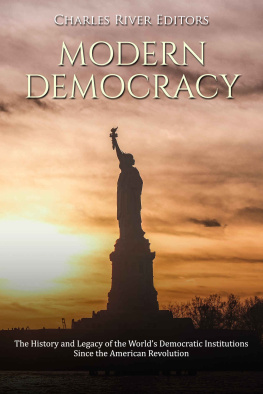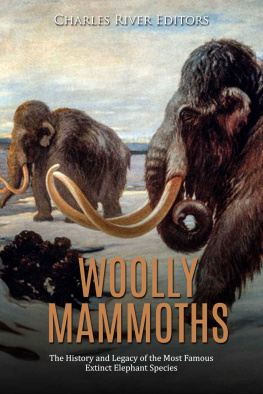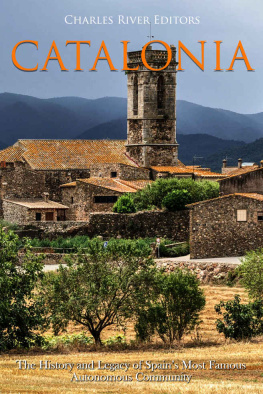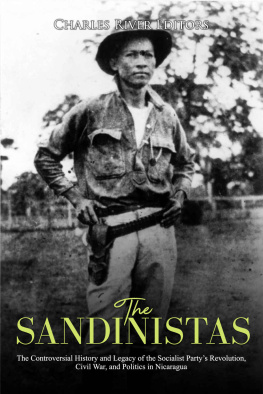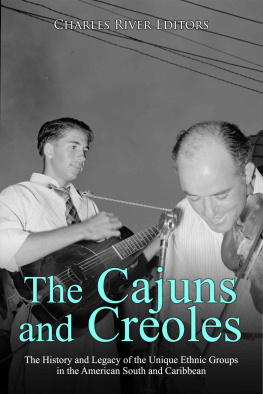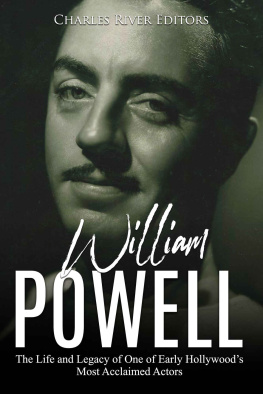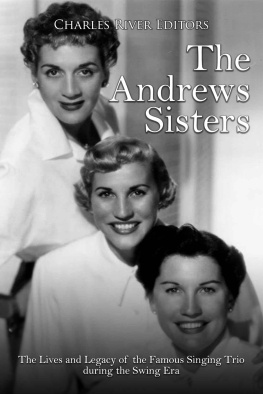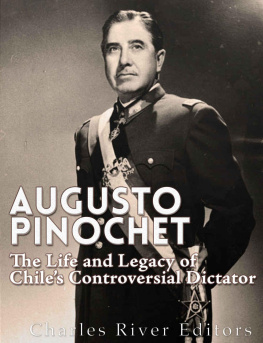Charles River Editors - Admiral David Farragut: The Life and Legacy of the American Civil War’s Most Famous Naval Officer
Here you can read online Charles River Editors - Admiral David Farragut: The Life and Legacy of the American Civil War’s Most Famous Naval Officer full text of the book (entire story) in english for free. Download pdf and epub, get meaning, cover and reviews about this ebook. year: 2019, publisher: Charles River Editors, genre: Non-fiction / History. Description of the work, (preface) as well as reviews are available. Best literature library LitArk.com created for fans of good reading and offers a wide selection of genres:
Romance novel
Science fiction
Adventure
Detective
Science
History
Home and family
Prose
Art
Politics
Computer
Non-fiction
Religion
Business
Children
Humor
Choose a favorite category and find really read worthwhile books. Enjoy immersion in the world of imagination, feel the emotions of the characters or learn something new for yourself, make an fascinating discovery.
- Book:Admiral David Farragut: The Life and Legacy of the American Civil War’s Most Famous Naval Officer
- Author:
- Publisher:Charles River Editors
- Genre:
- Year:2019
- Rating:5 / 5
- Favourites:Add to favourites
- Your mark:
- 100
- 1
- 2
- 3
- 4
- 5
Admiral David Farragut: The Life and Legacy of the American Civil War’s Most Famous Naval Officer: summary, description and annotation
We offer to read an annotation, description, summary or preface (depends on what the author of the book "Admiral David Farragut: The Life and Legacy of the American Civil War’s Most Famous Naval Officer" wrote himself). If you haven't found the necessary information about the book — write in the comments, we will try to find it.
Admiral David Farragut: The Life and Legacy of the American Civil War’s Most Famous Naval Officer — read online for free the complete book (whole text) full work
Below is the text of the book, divided by pages. System saving the place of the last page read, allows you to conveniently read the book "Admiral David Farragut: The Life and Legacy of the American Civil War’s Most Famous Naval Officer" online for free, without having to search again every time where you left off. Put a bookmark, and you can go to the page where you finished reading at any time.
Font size:
Interval:
Bookmark:
By Charles River Editors


Charles River Editors is a boutique digital publishing company, specializing in bringing history back to life with educational and engaging books on a wide range of topics. Keep up to date with our new and free offerings with this 5 second sign up on our weekly mailing list , and visit Our Kindle Author Page to see other recently published Kindle titles.
We make these books for you and always want to know our readers opinions, so we encourage you to leave reviews and look forward to publishing new and exciting titles each week.

Americans have long been fascinated by the Civil War, marveling at the size of the battles, the leadership of the generals, and the courage of the soldiers. Since the war's start over 150 years ago, the battles have been subjected to endless debate among historians and the generals themselves. The Civil War was the deadliest conflict in American history, and had the two sides realized it would take 4 years and inflict over a million casualties, it might not have been fought. Since it did, however, historians and history buffs alike have been studying and analyzing the biggest battles ever since.
After the first year of the Civil War, the Confederacy was faced with a serious problem. While the South had enjoyed some stunning victories on land, they had been all but cut off from the world at sea. The more industrialized North had realized that in case of an extended war, the best way to defeat the Confederacy was to starve it of supplies. The rebels started the war with no real navy to speak of, and so the federal government quickly set up a blockade of all Southern ports and river mouths. By depriving the South of revenues derived from its main export, cotton, the North seriously injured the Southern economy.
Without European intervention and the ability to build a navy that could rival the Unions, the Confederacy was mostly reduced to token resistance and using fast moving ships that could evade the blockade and import and export goods. Again, that was only partially successful, and today, the blockade runners are better known for their extracurricular activities; most notably, some of the crews also acted as privateers on the high seas, attacking U.S. shipping and taking any loot for themselves. The daring exploits of these commerce raiders caught the imagination of Southern soldiers and civilians and buoyed up morale, even as the war news turned increasingly grim.
Despite such impressive results, which fired the imaginations of Southern newspaper readers and gave them hope as the news on the battlefront grew increasingly bleak, the blockade runners were never able to adequately supply the Confederacy. Their shipments were too small, too infrequent, and too unreliable for a young nation on a war footing. Furthermore, while the Confederates tried to rely on blockade runners, the Union Navy assigned many ships the task of tracking them down and stopping them, and by the last year of the war, blockade running had been all but strangled. Several major ports had fallen to the Union, and the rest were tightly blockaded. The blockade runners had also suffered from attrition, so much so that by the end of the war, more than 1,100 of the ships had been captured and another 355 had been sunk or run aground.
Meanwhile, the North managed to have spectacular success jointly coordinating operations between the Army and Navy, thanks in large measure to the leadership of officers like David Farragut. While generals like Ulysses S. Grant and William Tecumseh Sherman received the lions share of the credit for Union victories, especially in the Western Theater, naval forces were instrumental in the capture of New Orleans and Vicksburg, as well as at Fort Donelson and Fort Henry, and Farragut was immediately recognized for his service. Congress made him the nations first Rear Admiral in history in 1862, and Farragut would also go on to become the first man in the history of the U.S. Navy to attain the rank of Admiral.
Despite his experiences throughout the Civil War, Farraguts name has become almost universally associated with a famous quote attributed to him during the Battle of Mobile Bay, when his flotilla encountered mines while trying to subdue the Confederacys last major open port. After one of the ships hit a mine and sank, the others began to pull back, only for Farragut to urge his forces forward, yelling, Damn the torpedoes! The ensuing victory earned Farragut another promotion in rank, and by the time Farragut died in 1870 at the age of 69, he had served in the U.S. Navy for nearly 60 years, ensuring that he would forever be remembered as one of his countrys most important naval officers.
Admiral David Farragut: The Life and Legacy of the American Civil Wars Most Famous Naval Officer chronicles Farraguts upbringing and how it prepared him for his important service in the Civil War. Along with pictures depicting important people, places, and events, you will learn about Farragut like never before.
David Glasgow Farragut was practically born with saltwater in his veins. His grandfather, Antonio Ferragut Guitard, was born in Sinen, Majorca, the son of Jorge Ferragut and of Ursula Guitart. After migrating to the smaller island of Minorca, Antonio married Juana Mesquida Bagur in Ciudadela in 1750 and subsequently became a sailor. Their son, Jordi Ferragut Mesquida, Davids father, was born in Ciudadela on September 29, 1755 and went to sea when he was just 10 on a Spanish merchant ship. In 1770, when he was 15, Jordi and his father enlisted on a British privateer that fought for the Russians during the Russo-Turkish War of 1768-1774, and they participated in the Battle of Chesema on July 5-7, 1770.

Jordi Farragut
After that conflict, Jordi Ferragut moved from Minorca to Barcelona to begin formal nautical studies, and two years later, on April 2, 1772, he migrated to North America. In 1773, he was appointed captain of a small merchant ship that plied the waters between Havana and Veracruz, and at some point during this time he changed his name from Jordi to Jeorge, which became anglicized to George. Ferragut eventually became Farragut.
Farragut moved to New Orleans, the capital of Spanish Louisiana, in 1775, just in time for the outbreak of the American Revolution. Referring to himself in the third person, he later wrote, For the first time, he heard of the difficulties between England and her colonies, and immediately determined to assist with his life and his fortune in the struggle for American independence. His home island of Minorca had been conquered by the British during the War of the Spanish Succession in 1708, and George viewed participating in the American Revolution against the British as a way of avenging his homeland.
Thus, George sailed from New Orleans to Port-au-Prince, Santo Domingue, where he traded his cargo for arms and powder. He brought these supplies to Charleston, South Carolina in March 1776 to the Americans preparing defenses against a forthcoming British siege, and due to his extensive naval experience, he was commissioned as a lieutenant on the 12-gun sloop Vixen, a South Carolina privateer commanded by Downham Newton. During a cruise in the summer of 1777, the Vixen seized four British merchant ships and their cargo. At Captain Newtons recommendation Farragut was appointed a first lieutenant of the South Carolina Navy, and in that capacity he participated in the Battle for Savannah in 1778. In 1780, he participated in the defense of Charleston as a foot soldier, and after being captured, he was sent to Philadelphia, where he was exchanged for captured British officers. Returning to South Carolina, his right arm was shattered by a musket ball, but he still joined a rifle militia in South Carolina that participated in the Battle of Cowpens. The day after that battle, he went to Wilmington, North Carolina as an artillery gunner, and he later raised a cavalry company.
Font size:
Interval:
Bookmark:
Similar books «Admiral David Farragut: The Life and Legacy of the American Civil War’s Most Famous Naval Officer»
Look at similar books to Admiral David Farragut: The Life and Legacy of the American Civil War’s Most Famous Naval Officer. We have selected literature similar in name and meaning in the hope of providing readers with more options to find new, interesting, not yet read works.
Discussion, reviews of the book Admiral David Farragut: The Life and Legacy of the American Civil War’s Most Famous Naval Officer and just readers' own opinions. Leave your comments, write what you think about the work, its meaning or the main characters. Specify what exactly you liked and what you didn't like, and why you think so.

